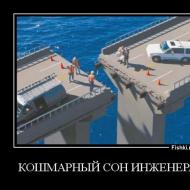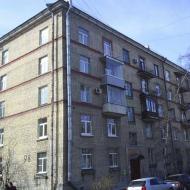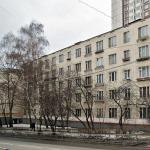
How corruption affects human life. The consequences of corruption. Economic Security Mechanisms of the economic security entity
Modern relevance of the topic of corruption is associated with a variety of its consequences. In addition to direct influence on economic processes, corruption has access to socio-political space. Regarding what this influence is, there are different points of view.
Negative impact of corruption.The Swedish economist Murdal, the founder of economic research of corruption, summarizing the experience of the modernization of the third world countries, branded in the 1960s. Corruption as one of the main obstacles to economic development.
This position is shared by many modern researchers who are assessed by corruption
negative economic consequences:
- the means accumulated by bribes often go out of active economic turnover and settle in the form of real estate, treasure, savings (and in foreign banks);
- entrepreneurs are forced to spend time on a dialogue with deliberately picky officials, even if you manage to avoid bribes;
- ineffective projects are supported, inflated estimates are funded, inefficient contractors are selected;
- corruption stimulates the creation of an excessive number of instructions so that they will then comply with the "help" for an additional fee;
- from civil service, qualified personnel are leaving, the morally not accelerating system of bribes;
- obstacles arise to implement the macroeconomic policy of the state, since the corrupt lower and middle links of the management system distort the information transferred to the government and subordinate the implementation of the intended goals of their own interests;
- corruption deforms the structure of government spending, as corrupt policies and officials tend to send state resources into such areas of activity where strict control is impossible and where the ability to extort bribes;
- the costs for entrepreneurs increase (especially for small firms, more defenseless before extinctors);
- bribes turn into a kind of additional taxation.
As a result of corruption and bureaucratic Volokita, investments (especially foreign) are inhibited during business documents. So, developed in the 1990s. American economist Paolo Mauro, the model allowed him to make an alleged conclusion that the growth of the "bureaucracy efficiency" (index close to the calculated
Transparency International The perception index of corruption) by 2.4 points reduces the rate of economic growth of the country by about 0.5%.
Negative influence of corruption on socio-political processes Camely as follows:
- social injustice intensifying in the form of dishonest competition of firms and unjustified redistribution of citizens' income. After all, an inefficient firm or even a criminal organization may give a larger bribe. As a result, income of bribes and bribes are growing while reducing the incomes of law-abiding citizens;
- corruption in the tax collection system allows rich to shy away from them and shifts the tax burden on the shoulders of poorer citizens;
- corruption in the highest echelons of power, becoming the property of publicity, undermines confidence in them, and, as a result, puts doubt on their legitimacy;
- corrupt management personnel is psychologically not ready to fall by their personal interests for the sake of development of society;
- corruption discredits justice, since the right is the right one who has more money and fewer self-regulations;
- corruption creates a threat to democracy, as it deprives the population of moral incentives to participate in elections;
- the slogan of combating corruption is able to legitimize the turn to the dictatorship and the failure of market reforms;
- corruption in the devices responsible for the law enforcement (army, police, courts), allows organized crime to expand its "robbing" activities in the private sector and even create symbiosis of organized crime and these organizations;
- corrupt regimes never enjoy "love" of citizens, and therefore they are politically unstable. The reputation of the Soviet nomenclature as a corrupt community largely legitimized the fall of the Soviet system. Because, however, in the post-Soviet Russia, the Soviet level of corruption was many times surpassed, it became one of the factors of the low authority of the government B.N. Yeltsin in the eyes of most Russians.
Positive corruption function.Participants in the discussions about corruption summarized that corruption has not only negative, but also positive consequences. One of the first to pointed out at the beginning of the XX century. The famous German sociologist Max Weber. Refusing a previously common tradition of morality, he showed the place of corruption in the process of forming a rational bureaucracy as a historically transient management form. Thus, the basis of a functional approach that considers corruption as a mechanism for removing the voltage between emerging and outdated norms was laid.
Modern economists, supporters of an institutional approach, often lean towards
partial justification of corruption from a functional point of view - How the ability to redistribute the resources of the old elite in favor of the new, avoiding direct clashes between them. Corruption is considered by them as
rational alternative to armed struggle for power. Corruption is largely large than the cost of changing the public course, the more distinct the discrepancy between the norms and the intentions of the outgoing and emerging orders. On the example of first developing, and then developed countries, the positive contribution to corruption in the plasticity and the conflict-free transformation of institutions was shown.
Thanks to this approach, corruption appeared not as a variant of deviating behavior, but as
discussion of previously formed norms and caused by new conditions of behavior models.
Other virtues are found in corruption:
- mediation of dialogue of living people and faceless state;
- giving the dialogue of the official positions of the form of personalized relations;
- stimulation of entrepreneurship due to the removal of a number of bureaucratic prohibitions;
- acceleration of the administrative machine;
- reducing the uncertainty of the price of resources distributed by the state due to the predictability of the bribe;
- detection of a real ratio of supply and demand for government goods and services for subsequent price adjustment.
However, the impact of corruption on economic growth depends on its scale. Small corruption size, apparently, admissible and even beneficial, but its prevalence is above a certain limit blocks economic development.
According to the logic of the functionalists, corruption is deducted by itself as the opposition of two regulatory systems weakens when the new rules displaces the old and one elite replaces the other. But this conclusion is not confirmed by the facts of the development of Russia in 1990-2000.
In many developing countries, corruption has not decreased after the completion of the modernization jerk. In the post-Soviet Russia, with the end of the period of turbulent socio-political and economic changes, there was also no disappearance or a cardinal reduction in corruption. There were doubts about the eligibility of the idea of \u200b\u200bmoving corruption as it exhausted its fucenity, understood as the ability to reconcile competing regulatory systems into transition periods.
Subject 3. Juridical responsibility for corruption crimes and offenses.
Definitions of corruption and corruption offense
Corruption is
a) abuse of official position, giving bribes, receipt of bribes, abuse of powers, commercial bribery or other illegal use of the individual of its official position Contrary to the legitimate interests of society and the state in order to gain benefits in the form of money, values, other property or property of property, other property rights for themselves or for third parties or illegal provision of such benefits to the specified person by other individuals;
b) committing the acts specified in subparagraph "a" of this clause, on behalf of or in the interests of a legal entity;
In the legislation of Russia, there is no unified approach to the definition of the concept of "corruption offense" and its relationship with the concepts of "corruption crime", "corruption misconduct", "offense, creating a condition for corruption"
The corruption offense is the use of his public public opinion for private purposes, contrary to the legitimate interests of society and the state for advantage, as well as violation of the normatively established rules intended to prevent corruption. These "use" and "violation" entail legal liability established by law.
In this case, the meaningful and formal signs of the corruption offense are reasonable.
The prepositional definitions of the corruption offense may be based on practical and theoretical activities, at the same time, need to be clarified by a number of offenses of the offenses as a specific legal category.
The corruption offense, as well as any other offense, is characterized by the following features:
First, the offense is committed in the form of act - actions or inaction (intentions cannot be offenses);
Secondly, the illegality - offenses contradict the requirements of legal norms (accomplishing actions prohibited by law or failure to perform legal obligations);
Thirdly, the offense causes either the threat of causing harm to public relations and interests protected by law norms;
Fourth, the offense is committed by enthusiastic persons guilty - intentionally or by negligence;
Fifth, the offense entails legal liability established by the sanctions of legal norms and applied to the offender, as a rule, in the form of state coercion measures.
Legal responsibility arises due to an offense and is a special legal relationship.
Citizens of the Russian Federation, foreign citizens and stateless persons for committing corruption offenses are criminalized, administrative, civil and disciplinary responsibility in accordance with the legislation of the Russian Federation. (Art. 13 of the Federal Law of 25.12.2008 No. 273-FZ "On Countering Corruption")
Criminal liability
Discussed in detail in the topic 4
MBOU "Atabaevskaya Secondary School named after
Hero of the Russian Federation Akhmetshina Marat Radikovich "
Laishevsky Municipal District
Republic of Tatarstan
An essay on the topic "Corruption, its negative impact on society"
Performed: student 8KlassHabibullina Razil Ramilevna, 13 years
Teacher: Vafina Fordan Borisovna,
russian teacher and
literature
Atabaevo 2017 year
Our life is a huge and complex world. The world where there is love and holy feeling of a partnership, and immediately there is anger and cruelty, humiliation and injustice. Like the coin has two sides, and our country has its drawbacks. Among them, the illegality and offenses, bribery and corruption occupy a special place. But your future, homeland, in our hands. And it also depends on me to be light and great.
Corruption ... This is a terrible word denoting the negative sides of public life. This word makes us unwittingly think about why this phenomenon still exists in this world, why is it still an integral part of our life? It seems to me that corruption is the illness of our society, our country, the economy. With her need to fight!
If you study the roots of corruption, then it can be understood that they go deep into antiquity. The topic of corruption is detected by the time of biblical texts. Moreover, many authors say about its presence and harm with bitterness. For example, the greatest masters like Shakespeare, Choseer, Dante were created on this topic. In their works, they showed their hostility to corruption, dissatisfaction with the highest authorities who do not take any actions on this matter. Among the famous Western thinkers, Nikolo Makiavelli paid more attention to this topic. It compares corruption with a car, which is initially difficult to recognize, but it is easier to treat, and if it is running, "although it is easy to recognize, but hard to heal." This comparison is very relevant and today.
To the great our regret, Russia is no exception. Its corruption relations are also centuries-old. In Soviet times, the decree "On bribery" was adopted, the term "corruption" was then not used, and instead, the term "abuse of official position" was used instead. Former Russian President Dmitry Medvedev signed a decree "On measures to combat corruption", strengthened control over corruption and tightened the struggle with her. Despite the fact that the state apparatus is trying to fight with this horror, I think, without harsh measures, do not do here. Initially, the reform should be performed "top down", the attempts of power to destroy corruption without "cleaning" the authorities itself will not lead to positive results. To take at least officials, in my opinion, this class of society has no respect for the people. There are a lot of them, and they do not do what they have to do, that is, working for people. It often happens that the official system creates all the new difficulties and obstacles that do not make it easier, and many times complicate the life of the people. The administration is those people who are willing to do everything, if only they put a tick of higher authorities.
In our republic, the fight against corruption was, there is and will continue until positive results have been achieved. The President of the Russian Federation Vladimir Putin, President of the Republic of Tatarstan Rustam Minnikhanov and the head of the Laishevsky Municipal District, President of the Republic of Tatarstan, are paying serious attention. The government takes new corruption laws almost every year, and they are more and more tougher every year. But despite this, and we have loopholes for very "enterprising" people who enjoy their official position for receiving bribes. This practice is common everywhere, especially corrupt officials who educate property relations, as well as medicine, education. I heard that even when passing state exams, there were cases of high score points for a bribe. I heard that there are students who buy almost every exam and offset. As a result, the state receives "linden" specialists who do not have the necessary knowledge.Now Corruption is gaining such force, to resist which soon it will be impossible. It seems to me that corruption leads a state to huge costs and losses.
And still,i think it is possible to fight corruption. And first of all, everyone should start this struggle from himself. After all, if no one will give bribes, then there will be no one to take them. And also it seems to me that the power must be a decent, honest people. And for this it is necessary to conduct a more rigid selection of officials and tighten the punishment for bribery. It is necessary to create such conditions for officials so that they are profitable not to take bribes.Effective will be the fight against this crime when the causes, forms and methods of corruption are examined, will develop and accept relevant laws, implement permanent international cooperation and intensify propaganda and educational activities among citizens.
I sincerely believe that it is possible to educate such a generation that will negatively relate to corruption. It is possible that it is we, a new generation, youth, we can find the road to a bright future, in which there is no corruption, and then we will live quietly, worthy and safely!
(From the speech at the meeting of the Round Table of the Festival "All-Russia-2006". Dagomys, September 26, 2006)
1. The difference between corruption from organized crime
Travel moments in the implementation of both organized crime and corruption are similar to the commission of these acts. Organized crime forms corruption links to ensure security from state and municipal authorities.
However, there is an internal discrepancy in order and objectives that the corrupt officer has been in front of state bodies and the corrupt officer from organized crime. One motive of committing a crime is direct personal enrichment, the second is to ensure its criminal activity that brings personal enrichment. In this regard, the costs of bribing officials reduce the overall criminal result, the so-called "dormitory", which is created by a criminal group, including to bribe officials.
In the interactions between corrupt officials and organized crime in Russia there were various states:
- the relationship of corrupt officials with "Cechovikov";
- change in the relationship of criminal groups to cooperation with the authorities - from complete denial to opportunities in collaboration;
- splits in the environment of criminal groups;
- Education of new types of criminal communities, more closely related to government and management bodies.
However, in all these relationships there are internal contradictions between the corruption officer and organized by the criminal group. A part of an organized criminal environment complies with "unprofitable thieves", according to which members of criminal groups are prohibited to cooperate with the authorities, if it does not benefit. The corrupt officer falls out of the open economy and does not fall into the criminal community due to non-compliance with its basic rules, remaining one to one with organized crime. In this regard, there are neither the laws of the state for compliance with its security, nor the rules of the criminal world to comply with the procedure for resolving controversial situations, as it is outside of these social entities.
2. Determination of the concept of "corruption".
2a. Acts related to corruption and punishable by criminal law.
The most interesting is to determine corruption given by N. Makkiaveli: the use of public opportunities in private interests.
Corrumpire - in Roman principle it was understood as to smack, to spoil, destroy, damage, falsify, bribe and marked an unlawful effect, for example, in relation to the judge. This concept occurred from the combination of the Latin words "Correi" - several participants in one of the sides of the obligatory attitude about the only subject and "rumpere" - to break, damage, violate, cancel. As a result, an independent term was formed, denoting participation in the activities of several (at least two) persons whose purpose is "damage", "damage" of the normal course of the trial or the process of managing the Company's affairs.
Further development of this concept in legal science narrows the scope of its designation and is defined as sales of official actions (bribery, Bestechung, Corruption).
International public regulatory documents give different definitions of corruption. Some of them cover the commission or impairment of any action in the performance of responsibilities or due to these duties as a result of the required or adopted gifts, promises or incentives or their illegal receipt whenever there is such an action or inaction. However, all of them (international public regulatory documents) emphasize that the concept of corruption should be determined in accordance with national law.
In the UN Documents on International Combat with Corruption, the latter is defined as abuse of state power to obtain benefits for personal purposes, i.e. Corruption goes beyond bribery. This concept includes as well:
- bribery (giving remuneration to seduce a person from the position of debt);
- Nepotyism (patronage based on personal connections);
- illegal assignment of public funds for private use.
The Interdisciplinary Council of Europe Corruption Group gave an even wider definition:
corruption is a bribery and any other behavior of persons who are entrusted to perform certain duties in the public or private sector and which leads to a violation of the duties assigned to them by the status of a public official, a private employee, an independent agent or another kind of relationship and aims to obtain any illegal benefits for yourself and others. In this case, the subject of corruption acts may be not only an official.
A similar idea is laid in the leadership prepared by the UN Secretariat based on the experience of different countries. It includes the concept of corruption:
a) theft, theft and assignment of state official officials;
b) abuse of official position to obtain unjustified personal benefits (benefits, benefits) as a result of the informal use of official status;
c) conflict of interest between social duty and personal care.
2b. Acts related to corruption, but not punishable by criminal law.
Based on the recommendations of the 8th Congress of the UN (Cuba, 1990) and analyzing the situation in the constituent entities of the Russian Federation, in addition to the traditional manifestations of corruption, as receiving a bribe and abuse of the official position, the following signs of this kind of acts not punished with criminal law can be additionally distinguished:
- Using the official position for the "transfer" of public funds into commercial structures and cashing;
- provision of benefits for its corporate group with distraction of public resources;
- the use of officials and civil servants of submarines and relatives in commercial structures;
- bureaucratic racket, expressed in extortion of material resources in commercial structures for their "transit" into other business organizations, political parties;
- "lobbying" when taking regulatory acts in the interests of interested persons (groups);
- various kinds of abuse of official position (criminally not punishable) in the process of privatization, leasing, licensing, quotation.
3. Negative influence of corruption on the development of the Russian economy.
3a. Threats from corruption to the civilized development of the economy.
The formation of corruption negatively affects the development of the economy in fact in all countries of the world. So the penetration of corruption into many public administration structures leads to an increasing increase in the cost of various goods, to an increase in the country's debt, which in turn entails the decrease in requirements for standards, both goods and technologies, since the corrupt officials are beneficial to increase capital, and not an increase in labor production.
When investing, due to corruption, the total price of the investment project may increase by 10-20% due to corruption bribes, and sometimes at 100%, when problems are solved on an inexped and unproductive investment project.
Corruption in government bodies also leads to economic inefficiency and unjustified expenditures due to its impact on the distribution of funds, products and in the field of consumption. The profit obtained through corruption ties is mainly not transmitted to the investment sector, but is used in the consumption sector or enters the foreign banking sector, which entails capital leakage from the country's economy.
In addition, corruption generates an unfair distribution, allowing the least effective counterparty that has the opportunity to buy officials to be guaranteed by the recipient of state contracts. And since the cost of a bribe is included in the price of produced goods or services, in general, product requirements are reduced, as a result of which the product structure deteriorates and the consumption of goods and services falls.
Thus, the overall negative impact of corruption on the economy is to reduce the overall welfare of the people.
The development of corruption is closely related to the existence of a bureaucracy. This leadership caste inside the state apparatus, creating a system for supporting his own domination by inefficient management, red tape, papermade, does not fulfill its basic functions. Not a separate bureaucrat, but bureaucracy as a system. "The most full member of the bureaucratic car, who daring to something not to obey her written unprofitable laws, is absorbed by this monster without a balance. Manages life in the end is not a bureaucrat (there would be no one-time-willed one), and bureaucracy, and not even she herself, And the objective historical factors that caused it to life. The specificity of the development of the bureaucracy in the conditions of a transitional multi-way economy is that, manifested in the form of fetishism of the document, it is an instrument of enrichment of officials, i.e. turns into fetishism of money.
The main consequences of the existence of the bureaucracy - administration and voluntarism of the "leading" workers, their incompetence, irresponsibility, which makes the economy almost uncontrollable in the formal existence of the state administration. In the transition economy, the former manifestations of bureaucracy are preserved - in the form of distortion of official statistical data. Many facts regarding countries with transitional economies are evidence of major discrepancies in economic assessments.
For example, in March 1993, the Ministry of Foreign Trade of Poland on the basis of customs statistics published information on the country's trade deficit in 1992 in the amount of 2.5 billion dollars of the United States. This contradicted the numbers previously represented by the National Bank, about the positive trading balance of 512 million USDLARES.
In Hungary in August 1992, according to the IVAT, the country's trade deficit for the first half of the year was 800 million dollars of the United States, and according to the NBB data, about 100 million dollars of the United States.
In February 1993, the former Prime Minister of the USSR V.Pavlov in open press said that the country's government managed to attract large honest investments for non-existent gold reserves.
As a result of the domination of the bureaucracy in the country, the economic processes are actually uncontrolled managers, and the officials themselves become participants and even the ideologists of the shadow economy.
A bureaucracy is not a set of shortcomings in the work of the management apparatus, but a social relation that collapses the economy. Monopolizing economy and society management functions, bureaucracy is directly dependent on the level of their development.
Thus, the next campaign of struggle of the bureaucracy itself begins with bureaucracy. The most vivid example of the start of this struggle is the restructuring of 1985, which was the result of the collapse of the USSR and a decrease in the living standards in all countries of the educated Commonwealth.
3b. The consequences of the impact of corruption on the economy are obvious:
Sales of officials serves as the basis for the formation of a negative attitude of the population to the results of all government reforms;
- Corruption makes it difficult to work the private sector due to the fact that there is a need to carry the costs of bribes, without investing them in investment;
- Corruption increases the price of public administration (the taxpayer must pay several times the same service, paying taxes and paying bribes to officials to make specific positive actions);
- if corruption acquires the form of extortion, it reduces social publicly available values \u200b\u200bfor the population;
- Corruption has an impact on administrative management in the country. Servant sales destroys the moral criteria of officials who should adhere to high ethical standards;
- Corruption in the government affects the perception by the population of legitimacy of the Board and forms a negative attitude as the legality of the regulatory acts published by the Government and the legality of the actions of the government;
- if well-known politicians and senior officials use their public opportunities for personal enrichment, the remaining officials and the population as a whole do not see for themselves the deterrent factors for personal enrichment;
- Corruption affects the attitude of the population to unpopular solutions that can be aimed at strategic improvement in the country, due to the developing belief that a sales official or politician acts in personal interests and it is unlikely that it works for the country prosperity;
- Corruption establishes injustice in society, which inevitably leads to judicial affairs and slanderous statements affecting even honest officials, who in this wave of universal compromising may be subject to blackmail in order to favor the economic interests of certain persons;
- The most common forms of corruption in some countries (uncontrolled possibility of rapid enrichment or large remuneration) cause officials to solve issues, considering them from the point of view of personal enrichment, and not social needs.
4. Areas of state activities, most vulnerable to corruption.
The most vulnerable to corruption are the following areas of state activities:
- Public deliveries;
- the distribution of the Earth;
- profitable fees;
- Appointments to state and municipal posts.
Corruption ties in these areas in many countries do not differ from each other - these are clan associations, family participants and relatives, contributions to political companies, the inclusion of the amounts of bribes in the prices of state contracts (concluding a consulting subcontract), fraud of all types.
Sales officials take interest from the amounts of state contracts that they often pay, transferring money to an account in a foreign bank or providing other services, such as children's training in foreign educational institutions.
Officials reduce the state administration of some sectors of the economy in order to provide their services through mediation companies as consultants. When concluding any contracts, foreign trips with the payment of arbitrary travel expenses exceeding the standards are often used.
In case of consignment from the government in the field of taxation, its representatives may threaten that in the event of non-payment of bribes, financial sanctions will be imposed or an additional tax will be introduced. In this case, the amount of bribes turns out to be much less penalties. Representatives who possess the rights to challenge licenses or fees require bribes to speed up the process of their design. Persons authorized to collect financial resources require bribes from their subordinates to transfer them to higher officials.
Corruption is developing mainly in such public administration systems, where, on the one hand, there are numerous non-laws of the problem, and the monopoly rights of the executive authority or government - on the other.
With a planned economy, where many prices are lower than the market, a bribe may affect the distribution of scarce goods and services. At the same time, officials additionally create problem areas as a path to extract bribes.
Officials can create obstacles and change conditions. The fundamental problem of the existence of corruption in such conditions is not just the existence of the managed prices established below the market level, but in the monopoly features of state representatives who do not threaten the yield of a more efficient and cheap competitor.
The state of the economy under the Soviet government government gave officials the opportunity to use the official for personal purposes. Corruption in the Soviet period was universal, since the proclaimed struggle was not supported by an impartial legal system. Instead of this decision, the condemnation of a specific official was ended with higher persons as a departmental and party affiliation, and had the interest of the decision maker. Subordinates could not turn to the law to protect their rights. The system was not just tough, but arbitrarily fierce. The irrationality of the requirements of the higher management (mostly party) often walked contrary to the law. The widespread principle of complicity in the sales transactions - a circular lie - became a method of public administration. The identified cases of corruption were often used to punish dissent, not improving the system of government as a whole.
During the transition period, if prices are allowed to achieve market levels, it seems to be necessary to pay bribes to get any benefits of supply. Privatization as a process can initially be a source of sales of officials, but should also reduce corruption by reducing public participation in the economy.
The transitional stage of reforms lack both the regulatory framework and the strength of administrative and political structures. The population living during reforms loses faith in the structure of public administration. In such an unfavorable period, citizens and business people simply emerge from the sphere of the legal economy and rely on organized crime to ensure the protection of their property and competitiveness. Corruption due to this can be a mechanism for the origin of public opinion about another path of development, and not about the relevant goals of economic management. The ultimate result of such devastating effects may be an increase in public pressure aimed at limiting the role of the market and returning the planned economy.
Dramatic changes in the management of the economy, which occurred in the transitional stage, caused a new obstacle: the distrust of the population to the government. It is possible to solve this problem with the reform of the legislation and the establishment of "transparent" rights and duties of the entire state system of economic management. It is necessary to carry out liberal changes in all areas of this control, while reducing incentives for bribery and eliminating subsidies, trade restrictions and preferential supplies for government needs. This requires laws governing legal relations in the field of environmental pollution, labor protection, the protection of the consumer market, the market of finance and securities, ensuring the social security of the low-income segments of the population. The new legislation should be developed so that it does not have lasers for corruption to establish the openness and publicity of government to avoid the abuse of power. However, some market transformations cannot solve all problems: structural and moral reforms should also be part of the solution.
In reasoning in the current state of affairs with corruption in the states of Russia and other members of the CIS, large-scale corruption has become one of the main theses. For example, only for the period 1995-1996. In the Central and Regional Russian press, over 3 thousand articles dedicated to corruption were published, more than 150 materials on television were shown on television.
When conducting various sociological surveys, more than 60% of respondents include corruption to problems that pose a threat to the national security of Russia, over 70% of respondents agree on the fact that today Russia refers to the number of states with a high level of corructuring of power structures.
State of affairs with corruption in far abroad.
Nevertheless, it is thought, absolutely wrongful dividing countries according to the degree of corruption of state power on the principle of East-West. Corruption is an international problem and is peculiar to all countries regardless of the political structure and the level of economic development.
Thus, in 1994, Switzerland, which is proud of the integrity of its civil servants, was simply shocked by a civilian scandal associated with the official from Canton Zurich. This state-owned husband, who worked on a fertile revision of restaurants and bars, was incriminated to bribes worth almost two million dollars.
In France, mass investigations of corruption cases involving well-known businessmen and politicians occur. "The situation in France is gradually changing, because another 10 years ago, the investigation of cases of bribery and corruption was prohibited here," says the French judge Jean-Pierre Tver.
In September 1996, a special conference on the problems of combating corruption was held in Berlin. In 1995, almost three thousand cases of bribery were recorded in Germany, more than two thousand people were attracted to the judicial responsibility, and German experts consider these numbers of the "Aisberg vertex".
According to the head of the Accounts Chamber of Earth, Hesse Udom Miller, bribes in the field of state orders and procurement make up to 20% of the total value of the transactions concluded. At the same time, the German construction industry is striking the most strongly corruption. According to the general prosecutor of Frankfurt am Main, the cost of about 40% of all buildings, which are erected by the order of federal, land and utility authorities, is overestimated by an average of 30%, and the annual damage from "Suks" is more than 1- billion magazines.
Numerous cases of corruption in Italy, affecting the highest political circles, have long been all over the world of patrols in the languages.
In one of its bulletins, the International Public Organization "TRANSPARENCY INTERNATIONAL" (TI), the purpose of which is the fight against corruption, claims: "She (corruption) has become the usual phenomenon in many leading industrial states, wealth and sustainable political traditions of which allow, however, to hide The scope of huge damage caused by the corruption of social and humanitarian spheres. " The study conducted in 1995 by TI branches in various countries of the world showed that "corruption in the public sector takes the same forms and affects the same areas regardless of whether it is in a developed or in a developing country."
It is also curious about the current business practices for foreign business firms in our country. On the one hand, many foreigners justify themselves at the Mzduction of domestic officials, which impede normal economic cooperation (more than 70% of the respondents of businessmen dealing with Russia and the CIS countries). On the other hand, many representatives of foreign companies are not broken by bribes to gain advantages in the competitive struggle for promising markets. It must be said that the tax legislation of a number of foreign countries does not interfere or even encourages such "traditions" (the exceptions are the United States, whose legislation is unequivocally prohibited a gift of bribes in other states).
Without exaggeration, it can be argued that foreign business in the CIS member states makes a very significant contribution to the development of domestic corruption. Comparing today's republics of the former Soviet Union with developed industrial countries with centuries-old democratic traditions, we must take into account that our countries are experiencing not just a period of "modernization", but a radical breaking of public, state and economic obscures. It is not surprising that they follow the general, including negative laws of development.
5. The nature of modern corruption.
5.1. Abroad.
The nature of modern corruption abroad is explained in different ways. Some see the cause in bad laws aggravating the degradation of the individual. The famous Swedish economist and a diplomat of Murdal, who headed the same European Economic Commission of the United Nations, complained, for example, that "because of bad laws we have become the people of Lovkachi." Some, however, argue that current laws have nothing to do with the reflection of eternal vices, which is confirmed by documentary references to Cicero, the ancient Russian chronicles, etc.
An even greater number of specialists consider the main cause of the growing army of the bureaucraticity, the bureaucratization of public life, the unjustified expansion of the role of the state. Bribes of officials were one of the conditions for successful business. Often, the very nature of the position is that the use of bribers is included in the usual "rules of the game." An important "supplier" of corruption practice is a widespread method of government policy to regulate market problems with non-market means - there are also numerous opportunities for bribes and extortion.
The third plan put forward the reasons lying in the economy. First of all, they call monopolism in all kinds. Indicate on the evolution of the market, which changes in front of the eyes, resulting in hundreds of billions circulate uncontrollably. There appeared, for example, a large sector, the so-called shadow economy, which we prefer to consider a kind of "illegal market formation", while in the West have been distinguished there, at least three types of economics, each of which contributes to the problem Corruption:
a) not taken into account, not observed (unobservated);
b) unregistered (unrecorded);
c) illegal, underground (illegal, underground).
In addition, with the organizational complication of entrepreneurship, especially with the advent of TNC, the role of intermediaries has increased. A large number of people who do not have elementary market culture have come to entrepreneurship and capable of doing money, and not to earn them. Finally, the standards of legitimate requirements for economic activities are changing.
Each of the specified three directions explaining the nature of modern corruption is their foundations. In addition, they are not separated from each other. Most specialists recognize that in modern conditions, the factors mentioned in the third group of reasons were published, i.e. The market, developing market relations associated with these inevitable discrepancies of emerging new social practice with existing legal standards that need to be either back up, or properly adjust as those who have exhausted themselves.
The analysis of publications about bribery in Russia shows that the roots of this phenomenon should be found in the preservation of multi-level monopolization of the economy, in the disordered formation of a business, in the absence of a clear legalization of the rights and obligations of participants in market relations, legislative guaranteeing, in the official lawlessness, including The parties of the new nomenclature in the face of the dignitaries from the rapidly reborn deputy corps.
As another example, a category of economic operations typical of modern business may be called such a kind of transfer transfers, which implies actual excretion not only from under public control, but also from the field of respectable market competition of huge multi-billion dollars, including with the aim evasion from taxes. In the modern practice of internal operations in the CIS, including in Russia, transfer translations is an integral part of the emerging market. In the global practice of bribes - an integral part of such transfer translations.
__________________________
© Rogozin Georgy Georgievich
Published on the site.
No less negatively corruption affects the economic development of any country. The destructive influence of corruption on the economy is that corruption becomes an obstacle to the implementation of the macroeconomic policy of the state. The fact is that hitting the lower and middle links of the management system, bribing their apparatus, corruption paralyzes the activities of the central government, which ceases to receive reliable information about the real state of affairs in the country's economy, and therefore cannot achieve the implementation of intended goals. One of the main negative manifestations of the impact of corruption on economic development is an increase in costs for entrepreneurs (especially for small firms, the most defenseless to extortionists). Thus, the difficulties of promoting business in countries with developing economies are in many ways precisely with the fact that officials make entrepreneurs often give bribes that turn into a kind of additional taxation. Even if the entrepreneur is honest and does not give bribes, he carries damage from corruption, because it is forced to spend a lot of time for communicating with deliberately picky officials.
Particularly destructive is the relationship between corruption and the shadow economy. Obviously, any economic activity not regulated by law needs bureaucratic and political protection, which can only be provided illegally, most often through corruption. The demand for illegal actions can often be the consequence of costs associated with legal registration and organization, using the bureaucracy of their authority. The legality means significant constant costs. In poor countries, the relative size of the shadow economy is most likely to be higher than in the rich. It is also found that illegal structures should pay relatively more of their net income (in the form of bribes) than legitimate. Nevertheless, corruption itself is also the reason that firms go underground. Moreover, corruption increases with increasing shares of the shadow sector in the economy. The positive empirical relationship between corruption and shares of the shadow sector in the economy is confirmed and theoretically, and empirically. The shadow economy is one of the main mechanisms by which corruption is deeply fixed in society. Note that corruption fees from the shadow economy get to legal bureaucratic structures. For this reason, the bureaucracy is very profitable to have a large shadow sector, a high degree of corruption of social relations.
Another manifestation of the destructive influence of corruption to the economy is that bureaucratic volume, bribes, when making business documents, make the business climate of the country extremely unattractive for foreign investments, which, ultimately, inhibits economic growth. The relationship of corruption and investment is shown in the works of the American economist P. Mauro. He tried to "identify channels through which corruption and other institutional factors affect economic growth, and measure the magnitude of these effects" 1. For this, various indicators were used, including 56 factors of investment risks for 68 countries. Respondents evaluated risk factors on a scale from one to ten. Corruption was named as one of the factors ("the level of engagement of corruption or dubious payments in business operations"). Among the risk indicators were "the quality of the judicial system", and the "bureaucratic volume". The model P. Mauro made it possible to assume that the growth of the calculated "bureaucracy efficiency" index (an index close to the perception index "Transparency International") by 2.4 points reduces the rate of economic growth of the country by about 0.5%. According to the calculations of another American economist, Shan-Chin Waaa, an increase in the corruption index for one score (with a 10-point scale) is accompanied by a drop by 0.9% of foreign direct investment. However, it should be noted that a rigid negative correlation between the level of corruption and the level of economic growth is absent, this relationship is noticeable only as a general pattern from which
Mauro P. The Effects of Corruption On Growth, Investment, And Government Expenditure // International Monetary Fund Working Paper. 1996. SEPTEMBER. P. 1-28.
there are many exceptions. An example of such an exception is the situation in the countries of Southeast Asia, where, despite the high level of corruption, the volume of foreign investment in their economy is very high. The answer lies to the degree of "predictability" of corruption: if the amount of bribes that you need to pay, knowingly known, then corruption can be perceived as a kind of taxation. If this volume is "impeccable", then investors will prefer not to invest in such a risk situation. The impact of corruption on foreign investments that took into account not only the volume of corruption, but also its "prediction", recently plays a significant role to stimulate investors. However, corruption contracts do not give legitimate right to appeal to court in violation of the terms of the contract, so the investor feels unprotected, even if the corruption is "predictable", and therefore prefers taxes with bribes.
Finally, corruption negatively affects the standard of living. Poor countries are usually more corrupt than rich. This conclusion is confirmed by numerous statistical studies, including a significant negative correlation between the GDP per capita and the level of corruption of the country. According to the World Public Opinion Survey "Barometer of World Corruption" (Global Corruption Barometer), Compiled by order of Transparency International, in 2013, the levels of bribery around the world were very high, however, most citizens believed that they were able to stop corruption, ready to confront official abuses, secret transactions and bribery. Back in 2010, in such poor countries, as Liberia and Cambodia, nine people out of ten gave a bribe; In the richest countries of the European Union and the United States, this indicator was one person from twenty.
At the same time, existing methods of statistical analysis do not allow reliably to identify causal relationships: corruption makes the country poorer, or the country's poverty predetermines a high level of corruption? At the same time, an assessment of the influence in 2014 the magnitude of the GDP per capita in 153 countries of the world on the perception index of corruption ( CPI) With a satisfactory degree of reliability (R. \u003d 0.641) shows the presence between them direct addiction ( CP1 \u003d. 0,8305l; + 31,875). It follows from this that the higher the economic potential of the country, the greater the value CPI And, accordingly, intolerant atmosphere to corrupt manifestations. The question of the relationship between the country's corruption level and its economic situation: the more developed the country, the less corrupt manifestations in it
| Second. A great need to give rise to great geniuses. The need to complete the elimination of corruption is obvious, and I hope that there is or already found a person who will offer a way to complete corruption. Third cause. Information explosion. In the era of easy accessibility of information, the task is to eliminate corruption, in my opinion, is reduced to a political decision, find a simple, but effective way to do. In short. We just need to want to do it, and then the decision will be found. |  |
Consequences of corruption
| Now we turn to the negative consequences that have corruption to our life. 1. The most important thing, corruption kills, or at least hesitantly slows down, the development of all mankind. The remuneration factor for success plays a large role in stimulating scientific developments and search for social innovation. But if corruption makes it possible to receive remuneration without applying effort, the stimulus stops working. 2. Corruption - basis for terrorism. Most of the financial resources obtained by terrorist organizations, in one way or another, is related to corruption. 3. Corruption counteracts the development of entrepreneurship. 4. Corruption deprives people of hopes for justice in solving many issues. 5. Corruption is hit by progress, as it makes it possible to circumvent legitimate ways to obtain education and accumulation of experience. 6. Corruption can contribute to the physical elimination of people or cause significant harm to their health. 7. Corruption gives rise to the need for additional social institutions of supervision and control, in which there would be no need for its absence. |
Do corruption have positive parties?
Causes of corruption
For the emergence of corruption there are several sufficiently good reasons:
- the desire of illegal enrichment;
- desire for time saving;
- personality characteristics of a person;
- system errors of the organization of commodity-monetary relations in society;
- tradition in the team;
- the impossibility of other ways to solve problems in their favor.
Methods of combating corruption
Total control.
Crucifier legislative prosecution.
Educational work.
Change of personnel composition.
It is possible to conclude from here that in order to eliminate corruption, it is necessary to change the social system. Probably yes. And the centenary anniversary of the Great Russian Revolution gives a hint that such a shift can occur.
Peino or not? We'll see.
There is a way to make corruption impossible
The history of corruption has been more than 2,000 years. Through many ways to combat it, but not one of them does not give a less acceptable result. It came to the point that corruption simply takes. So for example, made in the United States, where lobbying groups are financed by open and also openly promote the interests of their customers in the US Senate and Congress.
I want to say that I am invented by a technical way to make corruption in our country impossible. This method will be implemented if you vote for me in the elections of the President of Russia in March 2018, and before that it is helping its activity to nominate me a presidential candidate and signature collection.
The way to make corruption is technically impossible become possible to practical implementation only recently, the last 4-6 years. Previously, the decision proposed by me was not funds.
Now he appeared and we can say that corruption can go into the past for the next 2-3 years. Important components of the system are technology recognition technology and blockchain. Critical is also the availability of cellular communication or the Internet throughout Russia. About the most important component of the system, which will bury corruption, I will tell a couple of days before the elections.
















